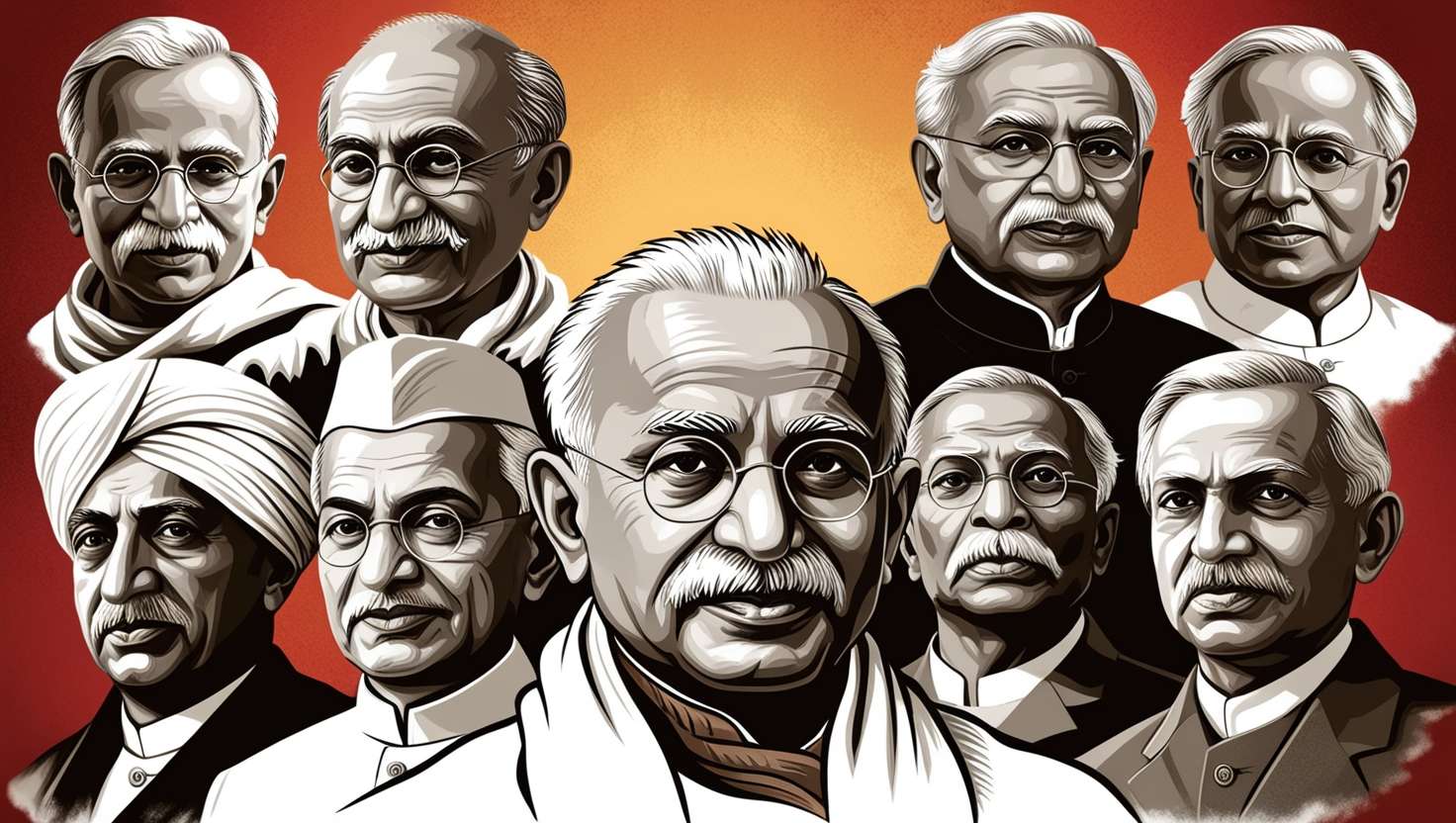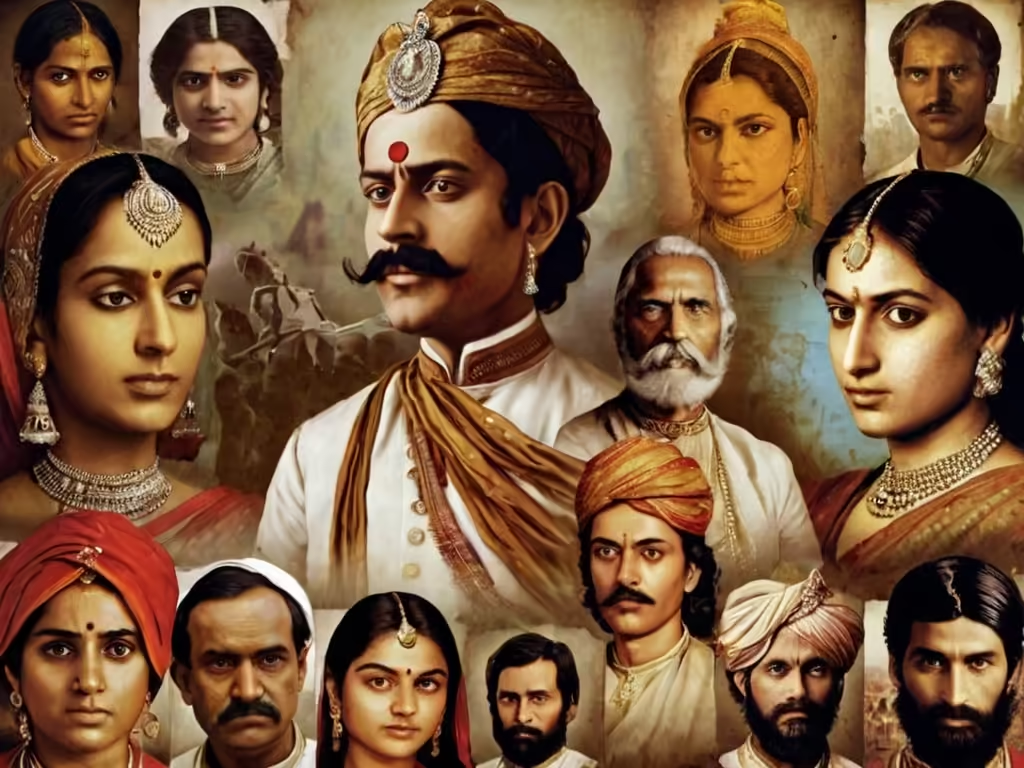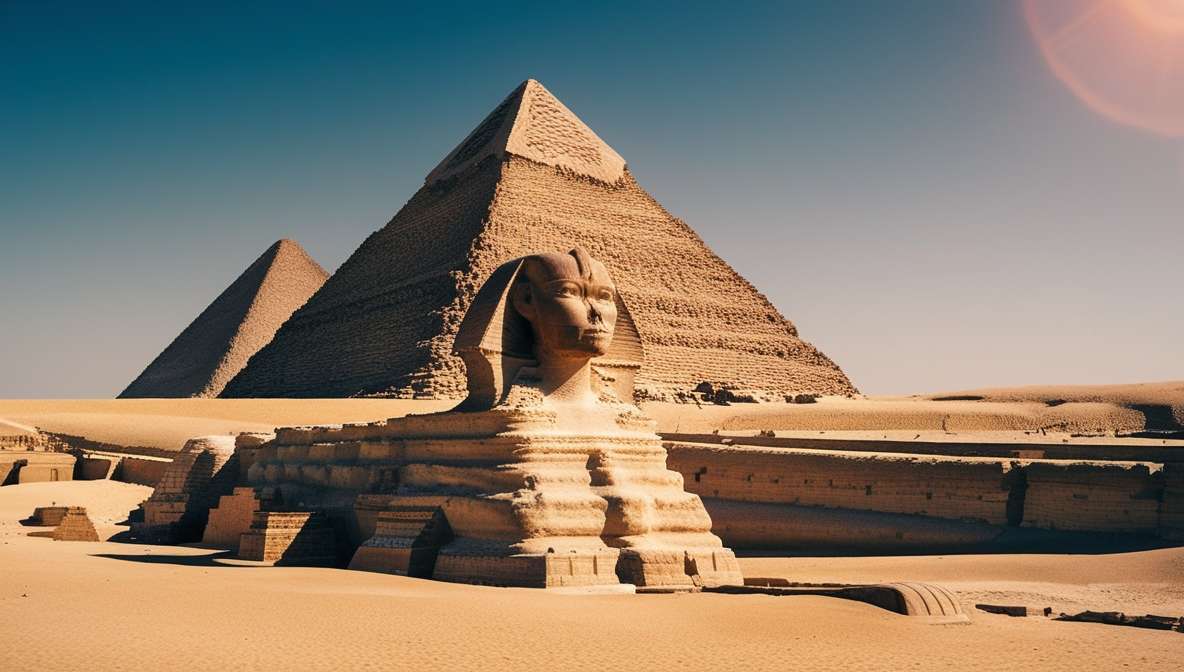Table of Contents
ToggleIntroduction
India’s journey to independence is a saga filled with bravery, sacrifice, and resilience. Numerous individuals dedicated their lives to freeing the nation from colonial rule. Here, we celebrate the top 10 freedom fighters of India, whose contributions were instrumental in achieving independence.
Mahatma Gandhi
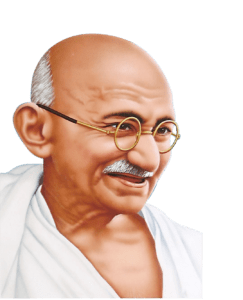
Mahatma Gandhi, often called the “Father of the Nation,” played a key role in leading India to independence. His ideas of non-violence and civil disobedience inspired millions to join the freedom movement. Gandhi’s impact during key events, including the Salt March and the Quit India Movement, remains unmatched. The 1930 Salt March was a major peaceful protest against the British-imposed salt tax. In 1942, during the Quit India Movement, Gandhi’s strong call for “Do or Die” encouraged many people to join, making it one of the largest and most significant uprisings against British rule. His unwavering dedication to truth and justice solidified his position as one of the top 10 freedom fighters of India.
Key Contributions:
- Non-violence and Civil Disobedience
- Salt March
- Quit India Movement
Jawaharlal Nehru
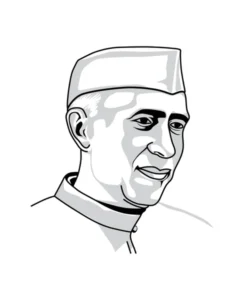
Jawaharlal Nehru was the first Prime Minister of independent India and a key figure in the freedom struggle. A close associate of Gandhi, Nehru’s vision for a modern India was rooted in democracy and socialism. He was instrumental in rallying international support for India’s independence. Nehru’s leadership and his efforts to build a newly independent nation make him one of the top 10 freedom fighters of India. His role extended beyond the freedom struggle as he laid the foundation for a democratic and secular India. Nehru aimed to transform India into a nation characterized by modern industry, scientific progress, and universal education. His tenure as Prime Minister saw the establishment of numerous institutions of higher learning, research centers, and industrial projects, all aimed at making India a self-reliant and progressive nation.
Key Contributions:
- First Prime Minister of India
- Democratic and Socialist Vision
- International Support for Independence
Subhas Chandra Bose
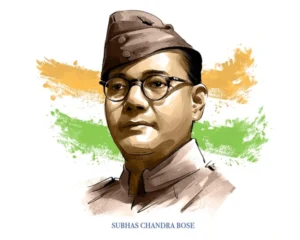
Subhas Chandra Bose, popularly known as Netaji, was a fierce nationalist who sought India’s freedom through armed struggle. He established the Indian National Army (INA) and collaborated with the Axis powers during World War II to challenge British domination. Bose’s slogan, “Give me blood, and I will give you freedom,” continues to inspire many. His strong will and role in creating the INA make him one of the top 10 freedom fighters of India. Bose was convinced that armed resistance was the only path to freedom and worked tirelessly to secure international backing for his efforts. The creation of the INA marked a crucial step in rallying Indian soldiers and civilians abroad to the cause of independence. Despite the eventual downfall of the Axis powers, Bose’s endeavors and steadfast dedication to the fight for Indian independence have left an indelible legacy.
Key Contributions:
- Founder of Indian National Army (INA)
- Alliances with Axis Powers
- Slogan: “Give me blood, and I will give you freedom”
Bhagat Singh
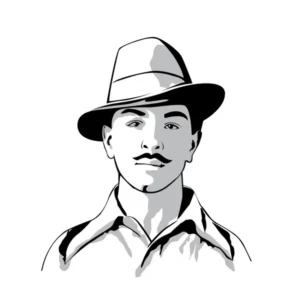
Bhagat Singh is a symbol of youth activism and revolutionary zeal. Known for his daring actions, including the bombing of the Central Legislative Assembly and the assassination of British police officer John Saunders, Singh’s martyrdom at the age of 23 turned him into an immortal icon of the freedom struggle. Singh’s fearless actions and his ultimate sacrifice cement his place among the top 10 freedom fighters of India. As a member of the Hindustan Socialist Republican Association (HSRA), Singh was dedicated to the cause of independence and believed that only through revolution could British rule be effectively challenged. The bombing of the Central Legislative Assembly in 1929 was intended to protest against repressive laws enacted by the British government. Singh’s execution in 1931 made him a martyr and a source of inspiration for future generations of Indians.
Key Contributions:
- Central Legislative Assembly Bombing
- Assassination of John Saunders
- Martyrdom at Age 23
Rani Lakshmibai
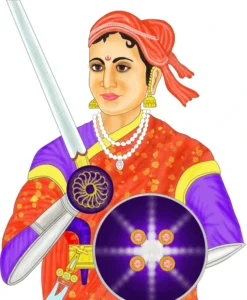
Rani Lakshmibai of Jhansi is remembered as a fierce warrior queen who played a significant role in the First War of Indian Independence in 1857. Her bravery and leadership in the face of overwhelming odds made her a legendary figure in Indian history. Rani Lakshmibai’s valor and her pivotal role in the 1857 uprising make her one of the top 10 freedom fighters of India. She defied British attempts to annex her kingdom and led her troops into battle with unmatched courage. The First War of Indian Independence saw Rani Lakshmibai emerge as a formidable leader. She organized her forces, trained her soldiers, and led them into battle with the cry of “Mera Jhansi nahi doongi” (I will not give up my Jhansi). Her defense of Jhansi against the British forces and her subsequent battles in Gwalior showcased her strategic acumen and her indomitable spirit.
Key Contributions:
- Leader in the First War of Indian Independence
- Symbol of Bravery and Leadership
Sardar Vallabhbhai Patel
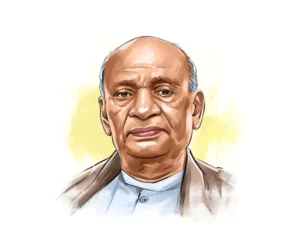
Sardar Vallabhbhai Patel, known as the Iron Man of India, was crucial in the integration of princely states into the Indian Union. His efforts in unifying the country post-independence are as significant as his contributions to the freedom struggle. Patel’s steadfast leadership and his unifying vision make him one of the top 10 freedom fighters of India. He played a critical role in persuading the princely states to join the Indian Union, thus preventing the fragmentation of the newly independent nation. Patel’s leadership during the freedom struggle was marked by his ability to mobilize farmers and peasants. As a key leader of the Indian National Congress, he organized movements like the Bardoli Satyagraha, which protested against unfair taxation policies.
Key Contributions:
- Integration of Princely States
- Unification of India
Dr. B.R. Ambedkar
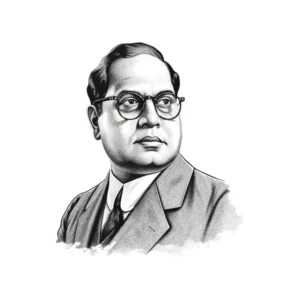
Dr. B.R. Ambedkar, the chief architect of the Indian Constitution, was a relentless advocate for social justice and equality. His fight against the caste system and his role in the drafting of the Constitution were pivotal in shaping modern India. Ambedkar’s dedication to equality and justice places him among the top 10 freedom fighters of India. He was instrumental in ensuring that the Indian Constitution provided for fundamental rights and freedoms for all citizens, regardless of their caste, religion, or gender. Ambedkar’s role in the freedom struggle was also marked by his efforts to educate and empower the oppressed classes. He founded institutions and led movements that aimed at eradicating social discrimination and promoting education. His legacy continues to inspire movements for social justice and equality in India and around the world.
Key Contributions:
- Chief Architect of the Indian Constitution
- Advocate for Social Justice and Equality
- Fight Against the Caste System
Chandra Shekhar Azad
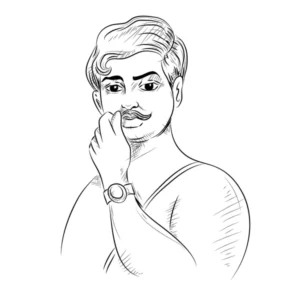
Chandra Shekhar Azad was a revolutionary leader known for his courage and commitment to the cause of independence. A key member of the Hindustan Socialist Republican Association (HSRA), Azad’s daring acts against the British made him a legendary figure. Azad’s bravery and his uncompromising stance against British rule make him one of the top 10 freedom fighters of India. He was involved in several revolutionary activities, including the Kakori Train Robbery and the attempt to assassinate British officials. His commitment to the cause was so strong that he vowed never to be captured alive by the British, a promise he kept till his last breath. Azad’s fearless attitude and his ability to inspire his fellow revolutionaries made him a central figure in the HSRA.
Key Contributions:
- Member of HSRA
- Daring Acts Against the British
- Martyrdom for the Cause of Independence
Sarojini Naidu

Sarojini Naidu, also known as the Nightingale of India, was a prominent freedom fighter and poet. She played a crucial role in the Civil Disobedience Movement and was the first woman to become the President of the Indian National Congress. Naidu’s advocacy for women’s rights and her significant contributions to the freedom struggle place her among the top 10 freedom fighters of India. Her eloquence and her ability to mobilize women and youth played a significant role in the independence movement. Naidu’s poetry and speeches reflected her deep commitment to the cause of freedom and her vision for a free and just India. Naidu was also a close associate of Gandhi and participated in various movements and protests.
Key Contributions:
- Role in Civil Disobedience Movement
- First Woman President of Indian National Congress
- Nightingale of India
Bal Gangadhar Tilak
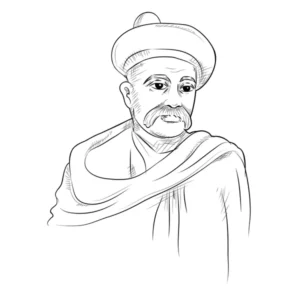
Bal Gangadhar Tilak, revered as Lokmanya Tilak, was an ardent nationalist and a significant figure in the early stages of India’s freedom struggle. His slogan, “Swaraj is my birthright and I shall have it,” inspired many to join the movement. Tilak’s passionate advocacy for self-rule and his role in mobilizing the masses make him one of the top 10 freedom fighters of India. He was a key figure in the Swaraj Movement, which called for complete self-rule for India. Tilak’s writings and speeches ignited the spirit of nationalism and encouraged Indians to fight for their rights. Tilak was also a scholar and a writer. He authored several works on Indian culture, history, and philosophy, promoting the idea of a united and self-reliant India.
Key Contributions:
- Swaraj Movement
- Advocate for Self-Rule
- Inspirational Leader
Conclusion
The top 10 freedom fighters of India represent the diverse and multifaceted struggle for independence. Their contributions, sacrifices, and unwavering commitment to the cause of freedom have left an indelible mark on the history of India. Their legacies continue to inspire generations to uphold the values of justice, equality, and self-determination.
FAQs
Mahatma Gandhi led the Salt March in 1930 to protest the British salt tax.
Subhas Chandra Bose founded the Indian National Army to fight against British rule.
Bhagat Singh was known for his revolutionary activities, including the bombing of the Central Legislative Assembly and his martyrdom.
Jawaharlal Nehru was the first Prime Minister of independent India.
